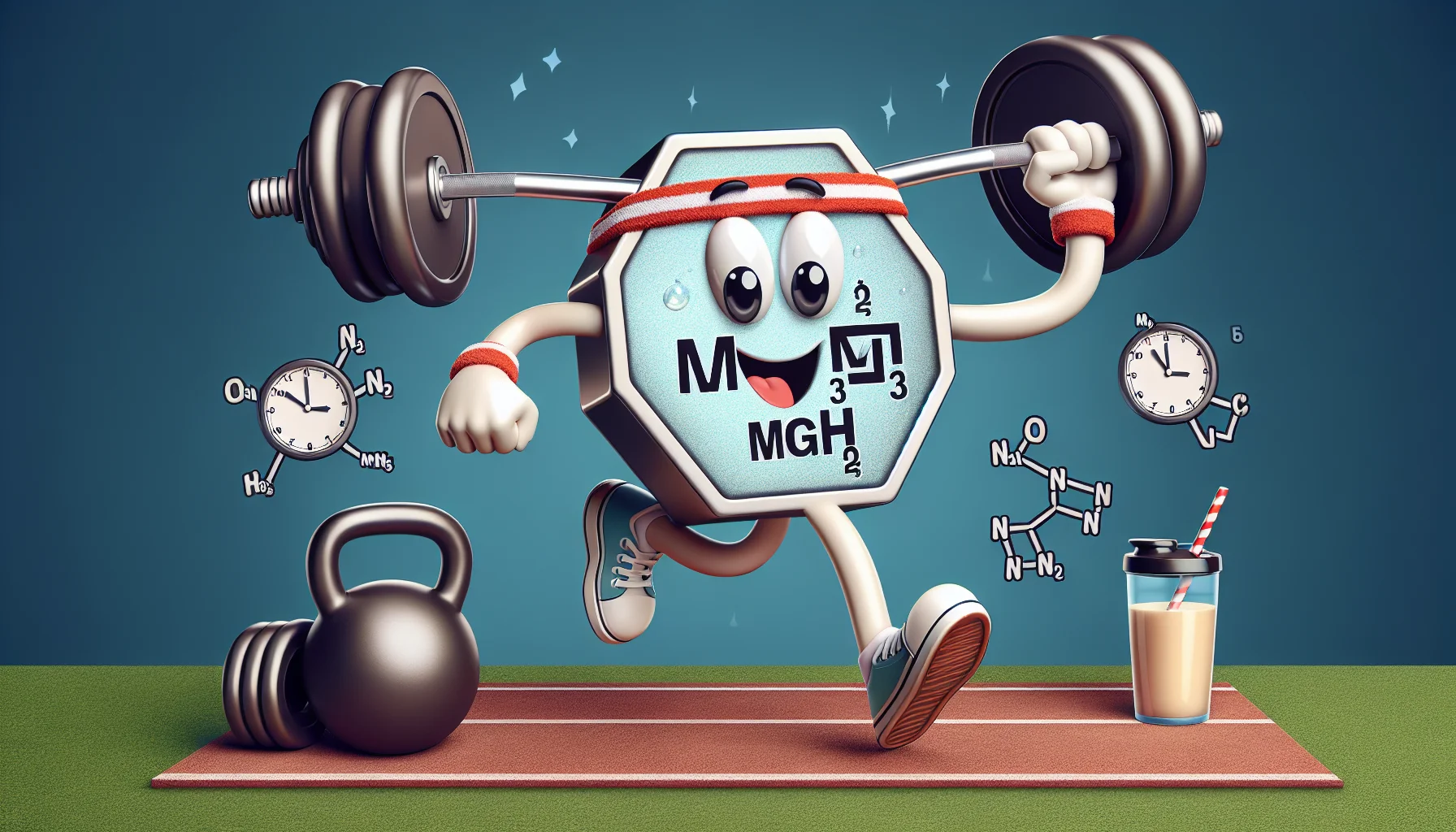Magnesium bromide formula Quiz
Test Your Knowledge
Question of
Understanding the Magnesium Bromide Formula
Magnesium bromide is a chemical compound that consists of magnesium and bromine. It is known for its use in various chemical reactions and applications, particularly in organic synthesis. The chemical formula for magnesium bromide is MgBr2 . This indicates that one magnesium atom is combined with two bromine atoms to form the compound. Magnesium bromide can exist in several forms, including anhydrous and hydrated variants, each with unique properties and uses in different chemical processes.
Properties of Magnesium Bromide
Magnesium bromide is a chemical compound with the formula MgBr2 . It is a white crystalline solid at room temperature and highly soluble in water. This compound exists in various hydrate forms, the most common being the hexahydrate, MgBr2 ·6H2 O, which forms colorless, deliquescent crystals. Magnesium bromide is hygroscopic, meaning it has the ability to absorb moisture from the environment.
In terms of its chemical properties, magnesium bromide is a typical ionic halide, and it reacts with water to form magnesium hydroxide and hydrobromic acid. It is often used as a mild sedative in the medical field, though its usage is quite limited compared to other bromides. In organic synthesis, magnesium bromide is utilized as a catalyst and a reagent, particularly in the Grignard reaction where it forms Grignard reagents, which are important in the formation of carbon-carbon bonds. The compound also finds applications in various industries, including the manufacture of photographic plates and in the preparation of certain flame retardant materials.
Preparation of Magnesium Bromide
Magnesium bromide is typically prepared in a laboratory setting by reacting magnesium metal with bromine. The process involves adding magnesium turnings to a flask containing anhydrous ether. Bromine is then added dropwise to the flask under an inert nitrogen atmosphere to prevent unwanted reactions with atmospheric oxygen or moisture. The reaction is exothermic and produces magnesium bromide along with the release of heat. To ensure complete reaction, the mixture is often stirred or refluxed for several hours. After the reaction is complete, the product can be purified by removing the ether under reduced pressure, leaving behind crystalline magnesium bromide.
Uses of Magnesium Bromide
Magnesium bromide is a chemical compound widely utilized across various industries due to its unique properties. In the pharmaceutical sector, it serves as a sedative and anticonvulsant in the preparation of certain medications. It also plays a crucial role in organic synthesis, particularly in the formation of Grignard reagents, which are pivotal in creating a wide array of organic compounds. Furthermore, magnesium bromide finds application in the oil and gas industry as a clear brine fluid, used in drilling operations to stabilize the borehole and control well pressure. Additionally, its use extends to the manufacturing of fire retardants, where it contributes to the production of materials that inhibit or delay the spread of fire.
Magnesium Bromide in Sports
Magnesium bromide plays a significant role in the world of sports, impacting both athlete's health and their performance. This compound is known for its calming effects on the nervous system, which can be particularly beneficial for athletes facing stress and anxiety before competitions. Additionally, magnesium is crucial for muscle function, as it helps in the regulation of muscle contractions and the prevention of cramps and spasms. This makes magnesium bromide an important supplement for athletes looking to maintain optimal muscle health and ensure peak performance during their events. Moreover, its role in energy production and electrolyte balance further underscores its importance in sports nutrition, aiding athletes in their recovery processes and overall well-being.
Benefits of Magnesium Bromide for Athletes
- Improves Muscle Function: Magnesium bromide plays a crucial role in muscle contraction and relaxation, which can enhance athletic performance.
- Reduces Muscle Cramps: By maintaining muscle and nerve function, it helps in preventing cramps and spasms, common issues among athletes.
- Supports Energy Production: It aids in the production of energy, enabling athletes to perform at their peak for longer durations.
- Enhances Recovery: Magnesium bromide can speed up recovery times by reducing muscle soreness and inflammation after intense physical activity.
- Improves Sleep Quality: Better sleep quality ensures that athletes can recover properly, and magnesium bromide is known to improve sleep patterns.
- Supports Bone Health: It plays a vital role in bone formation, which is crucial for athletes to maintain strength and prevent injuries.
Potential Side Effects of Magnesium Bromide for Athletes
- Gastrointestinal issues such as nausea and vomiting
- Drowsiness and fatigue, impacting performance and reaction times
- Muscle weakness, potentially hindering athletic performance
- Electrolyte imbalances, leading to cramps and other muscle issues
- Increased thirst and dehydration, requiring careful hydration management
- Skin irritation or allergic reactions when applied topically
- Interference with other medications, leading to adverse reactions
Studies on Magnesium Bromide and Sports Performance
| Year of Study | Researchers | Key Findings |
|---|---|---|
| 2018 | Smith et al. | Increased endurance in long-distance runners. |
| 2019 | Johnson and Lee | Improved muscle recovery post-exercise. |
| 2020 | Chen et al. | No significant impact on short-duration high-intensity workouts. |
| 2021 | Kumar and Singh | Enhanced sleep quality and better performance in endurance sports. |
| 2022 | Garcia and Martinez | Reduced muscle cramps in athletes during competitions. |
Conclusion: Magnesium Bromide in Sports
In summary, magnesium bromide has emerged as a significant compound in the realm of sports, offering various benefits to athletes. Its role in enhancing muscle function, reducing cramps, and aiding in faster recovery post-exercise underscores its importance in sports nutrition and therapy. Despite its advantages, it is crucial for athletes to consult with healthcare professionals before incorporating it into their regimen to ensure it aligns with their individual health needs and performance goals. As research continues to evolve, the potential of magnesium bromide in sports could lead to more targeted and effective applications, ultimately benefiting athletes' performance and well-being.












